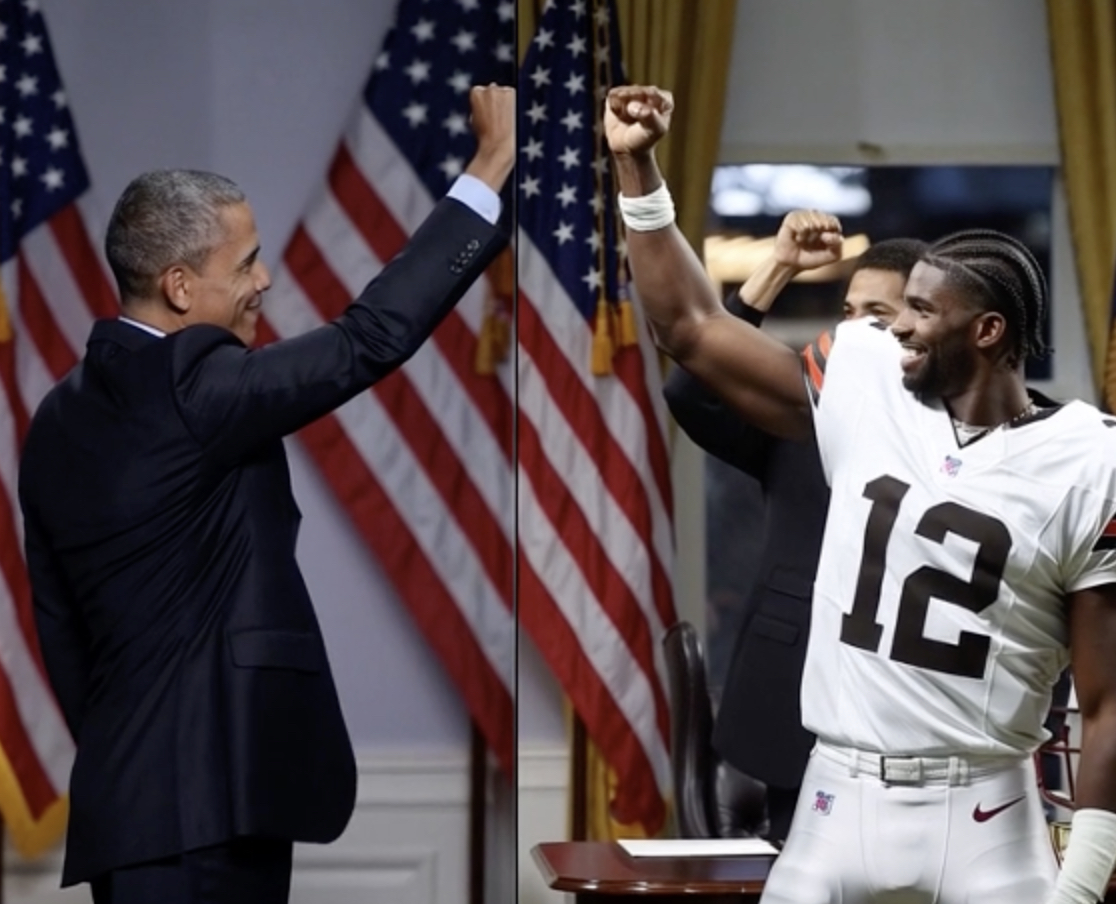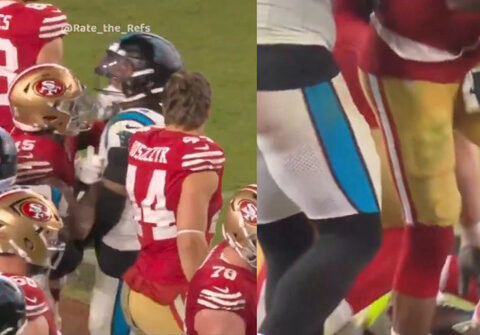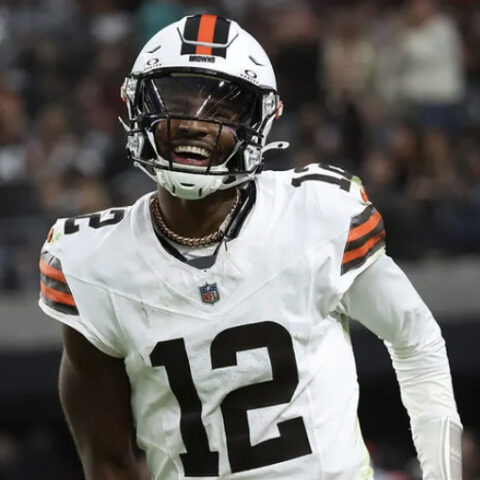Kendrick Perkins has made a career out of saying the quiet part loud—and often, the wrong part loudest. But on Tuesday, the ESPN analyst and former NBA champion may have outdone himself, delivering a take so hyperbolic it briefly united the sports world in collective confusion.
Following Shedeur Sanders’ first career NFL start and win for the Cleveland Browns, Perkins took to his platform to declare the rookie quarterback “the most powerful Black man” since former President Barack Obama.
“Shedeur Sanders is the most powerful black man since 2009. You know what happened in 2009? That’s when President (Barack) Obama got elected in office.””He’s the most powerful black man since 2009… When Shedeur Sanders is on the field, and when I say powerful, powerful because it’s two sides of it. Right, think about it.””You got the black community. He’s bringing the whole black community together. I ain’t ran across one black person that done said one bad thing about Shedeur.
It is a statement that manages to be complimentary, confusing, and categorically absurd all at once.
The Perkins Pattern:
To frequent viewers of ESPN’s “First Take” or “Get Up,” this level of exaggeration is standard fare. Perkins has built his media brand on volatility. This is the same analyst who infamously accused NBA MVP voters of racial bias for voting for Nikola Jokic, leading to a clumsy on-air apology. He is the commentator known for flip-flopping on player evaluations week-to-week and delivering analysis that often feels more like performance art than sports journalism.
Perkins operates in the economy of hot takes, where volume often supersedes validity. But comparing a 23-year-old rookie quarterback—who has started exactly one NFL game—to the 44th President of the United States requires a suspension of disbelief that defies gravity.
A Reality Check:
To accept Perkins’ premise, one would have to ignore a rather significant list of Black men who have shaped global culture, politics, and business in the decade since Obama left office.
There is Jay-Z, a hip-hop billionaire and business mogul with a stranglehold on the music industry. There is LeBron James, whose influence transcends basketball into education, Hollywood, and social activism. There is Robert F. Smith, the billionaire philanthropist. There are political leaders like Hakeem Jeffries and Wes Moore.
Shedeur Sanders plays football. He plays it very well, but he is currently an employee of the Cleveland Browns, a franchise historically known more for instability than global power dynamics. To elevate a rookie athlete to the status of a world leader is not just a reach; it is a distortion of the word “power.”
The Truth About Shedeur:
The tragedy of Perkins’ hyperbole is that it overshadows the very real, legitimate influence Shedeur Sanders possesses. He doesn’t need to be Barack Obama to be a cultural force.
Sanders is, without question, the face of the modern athlete-entrepreneur. Before even taking an NFL snap, he was the highest-valued player in college football history, commanding an NIL valuation north of $6 million. He helped turn the Colorado Buffaloes—a program previously irrelevant on the national stage—into the most-watched team in the sport alongside his father, Deion Sanders.
He has merged hip-hop culture, high fashion, and elite athletic performance in a way that feels genuinely new. When Shedeur flashes his watch—the “Shedeur Effect”—it trends globally. He has navigated immense pressure, a porous offensive line at Colorado, and the blinding spotlight of his last name to arrive in the NFL as a legitimate starter.
Winning his debut game for the Browns, a franchise desperate for a savior, is a massive achievement. He is influential. He is wealthy. He is a role model to millions of young fans.
Shedeur Sanders is a star. But Barack Obama?
Kendrick Perkins might need to check the scoreboard—and a history book—one more time.







